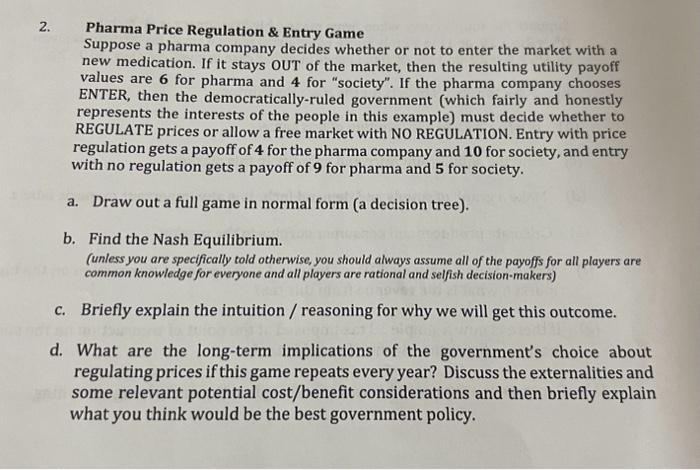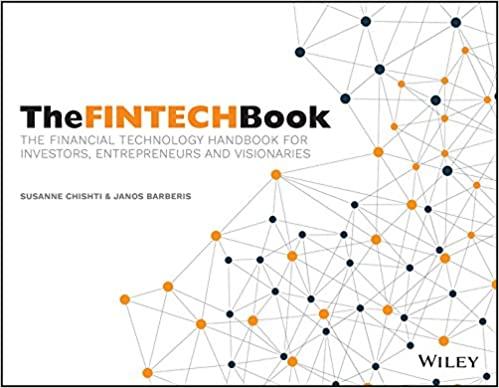2. Pharma Price Regulation \& Entry Game Suppose a pharma company decides whether or not to enter the market with a new medication. If it stays OUT of the market, then the resulting utility payoff values are 6 for pharma and 4 for "society". If the pharma company chooses ENTER, then the democratically-ruled government (which fairly and honestly represents the interests of the people in this example) must decide whether to REGULATE prices or allow a free market with NO REGULATION. Entry with price regulation gets a payoff of 4 for the pharma company and 10 for society, and entry with no regulation gets a payoff of 9 for pharma and 5 for society. a. Draw out a full game in normal form (a decision tree). b. Find the Nash Equilibrium. (unless you are specifically told otherwise, you should always assume all of the payoffs for all players are common knowledge for everyone and all players are rational and selfish decision-makers) c. Briefly explain the intuition / reasoning for why we will get this outcome. d. What are the long-term implications of the government's choice about regulating prices if this game repeats every year? Discuss the externalities and some relevant potential cost/benefit considerations and then briefly explain what you think would be the best government policy. 2. Pharma Price Regulation \& Entry Game Suppose a pharma company decides whether or not to enter the market with a new medication. If it stays OUT of the market, then the resulting utility payoff values are 6 for pharma and 4 for "society". If the pharma company chooses ENTER, then the democratically-ruled government (which fairly and honestly represents the interests of the people in this example) must decide whether to REGULATE prices or allow a free market with NO REGULATION. Entry with price regulation gets a payoff of 4 for the pharma company and 10 for society, and entry with no regulation gets a payoff of 9 for pharma and 5 for society. a. Draw out a full game in normal form (a decision tree). b. Find the Nash Equilibrium. (unless you are specifically told otherwise, you should always assume all of the payoffs for all players are common knowledge for everyone and all players are rational and selfish decision-makers) c. Briefly explain the intuition / reasoning for why we will get this outcome. d. What are the long-term implications of the government's choice about regulating prices if this game repeats every year? Discuss the externalities and some relevant potential cost/benefit considerations and then briefly explain what you think would be the best government policy







